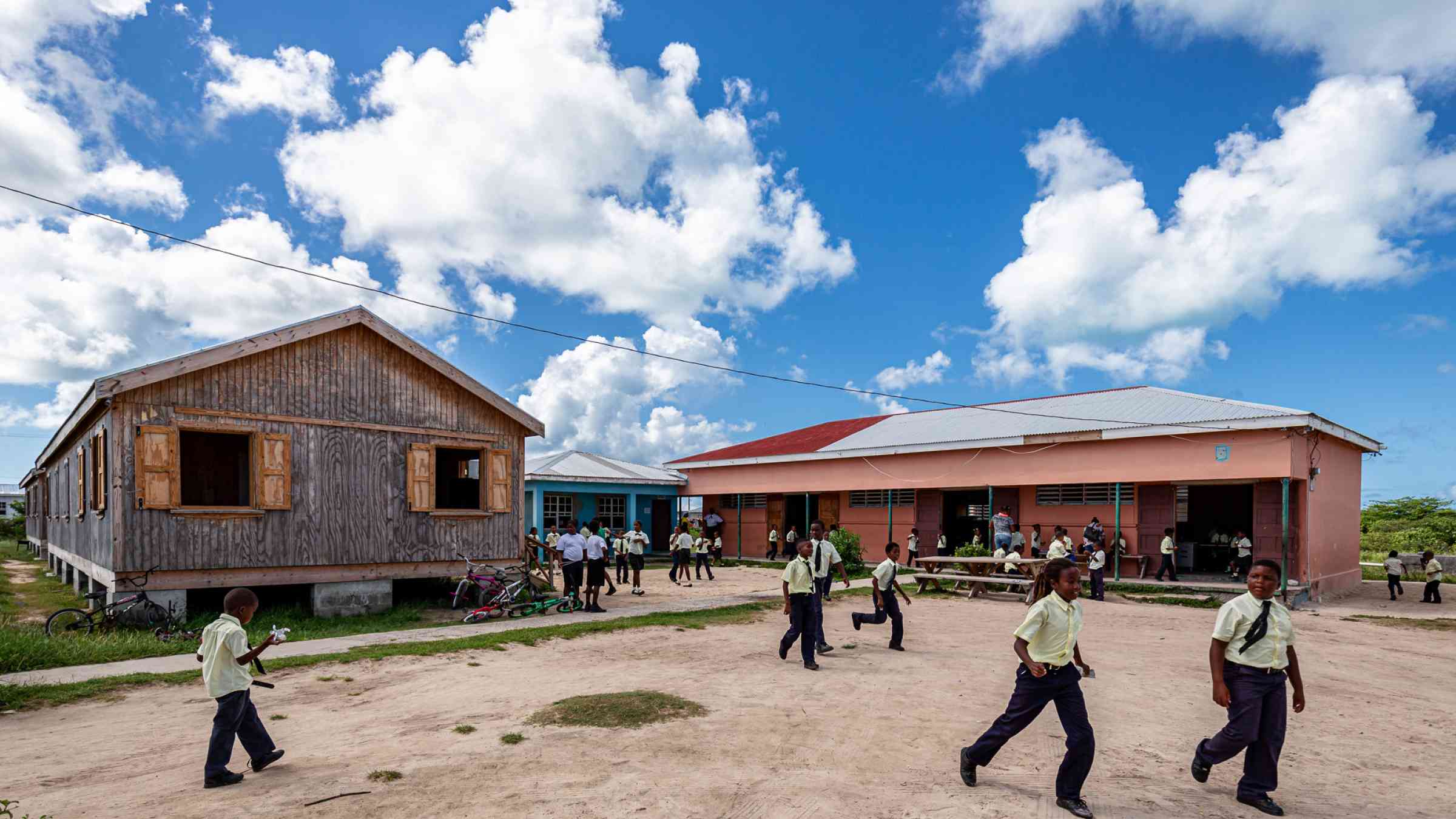UNDRR ROAMC: Investment in education creates more resilient societies

Investments in safe schools provide economic returns for society and also contribute to economic recovery, according to the latest evidence. They represent a clear way to finance risk reduction initiatives in the education sector and are a direct contribution to the creation of more resilient societies.
The suspension of classes for more than a year, due to the pandemic, has not been duly dimensioned. Until now. Education may well be one of the most affected sectors by the COVID-19 crisis. According to different analyses, students affected by school closures will obtain 3% less income during their professional lives, which will mean an approximate GDP loss of 1.5% over the remainder of the century. The pandemic will also increase school desertion and will have a profound effect on learning processes for an entire generation, without taking into account systemic effects from school closures, such as increased malnutrition, mental health effects, and other vulnerabilities.
These are devastating figures that demonstrate the need for schools and their safety to be a fundamental part of national budgetary preparations. 3 out of 5 students who did not go to school last year live in Latin America and the Caribbean. This was emphasized during the Virtual Caribbean Safe School Initiative Pre-Ministerial Forum, held between the 15th to the 26th of last March, which was oriented towards the promotion of safety in Caribbean schools, and which is the regional mechanism for putting into practice a relationship between education and resilience.
The sixth session of the Pre-forum: School safety investment as a Key Element of Economic Recovery showed the importance of integrating into recuperation processes all the lessons learnt during this crisis.
“We should invest in gathering and use of information for observation and mapping of precise interventions, while at the same time modernizing our technological infrastructure, not only to be able to face disasters, but also in regards to contemporary realities,” stated Fayval Willams, Minister of Education, Youth, and Information of Jamaica.
According to João Pedro Azevedo, World Bank economist, the educational system must prepare its teachers to confront lower learning levels and higher inequality levels. That is to say, to prepare them for the consequences of the pandemic. “Vulnerable sectors have been those most affected by the closures during the pandemic since they have no access to the necessary technology,” added Cynthia Hobbs, an education specialist from the Interamerican Development Bank.
Andrew A. Fahie, Prime Minister of the British Virgin Islands, stated that reconstruction of the school system after the pandemic must consider technology. “Inaction cannot be an action,” he stated.
FUNDING PRIORITY
Kamal Ahmed, an international disaster risk finance consultant for the United Nations Office for Disaster Risk Reduction (UNDRR), elaborated further on the importance of investing in all aspects of school safety. “A school structure that collapses or closes interrupts nutritional programs, for example, which are a key element in social programs of many countries, and which at times are the only access to nutrition for many vulnerable children. In the case of the pandemic, if the child stays at home, and the father or mother must also stay, it reduces participation of that home in the labour market and therefore, their income,” stated Ahmed. “Investment in education produces amazing results, but also a lack of investment leaves surprising consequences.”
According to Ahmed, governments should develop a comprehensive evaluation of schools, identifying strengths and capacities, in addition to creating a matrix with safe and resilient school strategies, fragile and marginal school programs, and most vulnerable school projects. A plan must be created to compensate for learning losses.
From the financial point of view, added Ahmed, investment must be made in such a way as to reduce economic, social, environmental, physical, and lack of governance vulnerabilities. The Ministry of Education must be the priority in national budget preparation, with projections not only for costs but also for emergency funds.
Raúl Salazar, chief of UNDRR - Regional Office for the Americas and the Caribbean, stated that “loss of education increases gaps and inequality in the school system, and therefore social vulnerabilities. The disappearance of a large sector of the school population from the educational system will create significant effects on all social systems, including the economic systems.” This clearly underlines the dimensions of systemic risk by its characteristics and requires us to confront them with a holistic and comprehensive vision.
Fahie, Prime Minister of the British Virgin Islands, specified that 20% of the 7% tax collection is applied to financial services for the improvement of schools structure. In this case, risk reduction forms a permanent part of state expenditures.
The Sendai Framework for Disaster Risk Reduction (2015-2030) is clear on this subject: “disaster risk reduction should be strengthened by providing adequate resources through various funding mechanisms, including increased, timely, stable and predictable contributions to the United Nations Trust Fund for Disaster Reduction and by enhancing the role of the Trust Fund in relation to the implementation of the present Framework”.
The world initiative for Safe Schools was accepted by the States during the signing of the Sendai Framework, which has been in effect for six years as of the 18th of March.
“In order to go forward, we must do it together, in a comprehensive way, with inter-institutional and inter-sectorial effort that would employ the disaster management abilities of various sectors which will put in motion well developed plans and strategies, financed and coherent with other large agencies, such as the Sustainable Development Objectives, and the Paris Agreement,” stated Mami Mizutori, the Special Representative of the Secretary General for Disaster Risk Reduction, during the opening day of the Pre-Ministerial Forum.